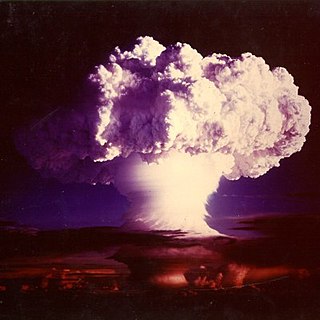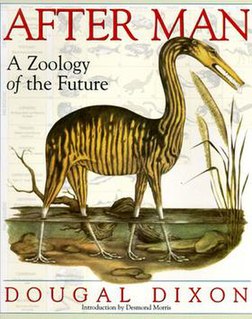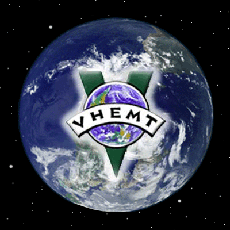 W
WHuman extinction is the hypothetical complete end of the human species. This may result either from natural causes or due to anthropogenic (human) causes, but the risks of extinction through natural disaster, such as a meteorite impact or large-scale volcanism, are generally considered to be comparatively low. Anthropogenic human extinction is sometimes called omnicide.
 W
W10 Ways to End the World, aka Last Days of Man is a Swedish TV series by Magnus Sjöström documenting catastrophes that could endanger human existence. The series is produced by Sveriges Utbildningsradio (UR) and was aired on Kunskapskanalen in December 2010 under the Swedish name Mänsklighetens sista dagar and on National Geographic and Arte in 2012. The series was nominated for the Scandinavian TV award, Kristallen, in 2011.
 W
WAfter Man: A Zoology of the Future is a 1981 speculative evolution book written by Scottish geologist Dougal Dixon and illustrated by several illustrators including Diz Wallis, John Butler, Brian McIntyre, Philip Hood, Roy Woodard and Gary Marsh. The book also features a foreword by Desmond Morris. After Man explores a hypothetical future set 50 million years from now, a time period Dixon dubs the "Posthomic", which is inhabited by animals that have evolved from survivors of a mass extinction succeeding our own time.
 W
WA global catastrophic risk is a hypothetical future event which could damage human well-being on a global scale, even endangering or destroying modern civilization. An event that could cause human extinction or permanently and drastically curtail humanity's potential is known as an existential risk.
 W
WLife After People is a television series on which scientists, mechanical engineers, and other experts speculate about what might become of Earth if humanity instantly disappeared. The featured experts also talk about the impact of human absence on the environment and the vestiges of civilization thus left behind. The series was preceded by a two-hour special that aired on January 21, 2008, on the History Channel which served as a de facto pilot for the series that premiered April 21, 2009. The documentary and subsequent series were both narrated by James Lurie.
 W
WLove is a 2011 American science fiction drama film produced and scored by the alternative rock band Angels & Airwaves. The film is the directorial debut of filmmaker William Eubank. The film's world premiere took place on February 2, 2011 at the 26th Annual Santa Barbara International Film Festival and the film was later featured in the Seattle International Film Festival, FanTasia 2011, and a number of other festivals around the world. The film was screened in 460 theatres across the United States on August 10, 2011, in the Love Live event.
 W
W"There Will Come Soft Rains" is a lyric poem by Sara Teasdale published just after the start of the 1918 German Spring Offensive during World War I, and during the 1918 Flu Pandemic about nature's establishment of a new peaceful order that will be indifferent to the outcome of the war or mankind's extinction. The work was first published in the July 1918 issue of Harper's Monthly Magazine, and later revised and provided with the subtitle "War Time" in her 1920 collection Flame and Shadow. The "War Time" subtitle refers to several of her own poems that contain "War Time" in their titles published during World War I, in particular to "Spring In War Time" that was published in her 1915 anthology Rivers to the Sea.
 W
W"There Will Come Soft Rains" is a science fiction short story by author Ray Bradbury written as a chronicle about a lone house that stands intact in a California city that is otherwise obliterated by a nuclear bomb, and then is destroyed by a fire caused by a windstorm. First published in 1950 about future catastrophes in two different versions in two separate publications, a one-page short story in Collier's magazine and a chapter of the fix-up novel The Martian Chronicles, the author regarded it as "the one story that represents the essence of Ray Bradbury.". Bradbury's foresight in recognizing the potential for the complete self-destruction of humans by nuclear war in the work was recognized by the Pulitzer Prize Board in conjunction with awarding him a Pulitzer Prize Special Citation in 2007 that noted, "While time has (mostly) quelled the likelihood of total annihilation, Bradbury was a lone voice among his contemporaries in contemplating the potentialities of such horrors.". The author considered the short story as the only one in The Martian Chronicles as a work of science fiction.
 W
WThe Voluntary Human Extinction Movement (VHEMT) is an environmental movement that calls for all people to abstain from reproduction to cause the gradual voluntary extinction of humankind. VHEMT supports human extinction primarily because, in the group's view, it would prevent environmental degradation. The group states that a decrease in the human population would prevent a significant amount of human-caused suffering. The extinctions of non-human species and the scarcity of resources required by humans are frequently cited by the group as evidence of the harm caused by human overpopulation.
 W
WThe World Without Us is a 2007 non-fiction book about what would happen to the natural and built environment if humans suddenly disappeared, written by American journalist Alan Weisman and published by St. Martin's Thomas Dunne Books. It is a book-length expansion of Weisman's own February 2005 Discover article "Earth Without People". Written largely as a thought experiment, it outlines, for example, how cities and houses would deteriorate, how long man-made artifacts would last, and how remaining lifeforms would evolve. Weisman concludes that residential neighborhoods would become forests within 500 years, and that radioactive waste, bronze statues, plastics, and Mount Rushmore would be among the longest-lasting evidence of human presence on Earth.